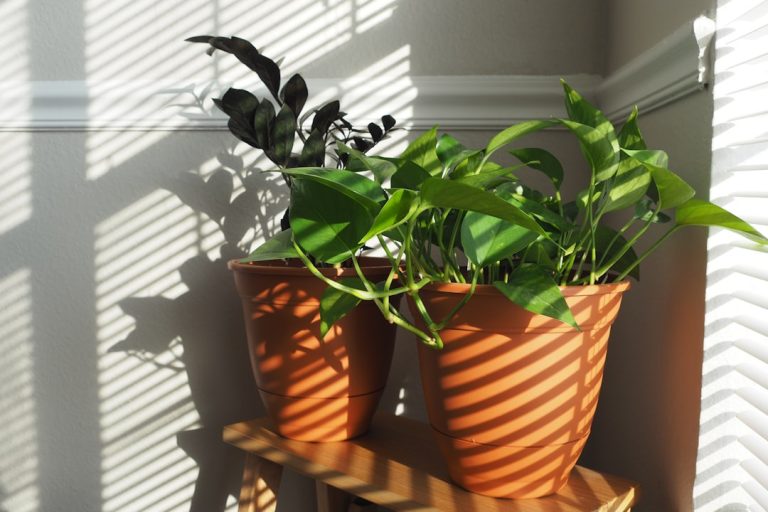Organic gardening is a method of growing plants and vegetables without the use of synthetic fertilizers, pesticides, or genetically modified organisms. Instead, organic gardeners rely on natural processes and materials to maintain the health of their plants and soil. This approach to gardening is not only beneficial for the environment but also for the health of those consuming the produce. Organic gardening is a holistic and sustainable way of growing food that promotes biodiversity, soil health, and overall environmental well-being. It is a way of working with nature rather than against it, and it encourages a deeper understanding of the interconnectedness of all living things.
Organic gardening can be practiced in a variety of settings, from small urban gardens to large-scale farms. It is a method that has been used for centuries, long before the advent of synthetic chemicals, and it continues to gain popularity as people become more aware of the impact of conventional farming practices on the environment and human health. By embracing organic gardening, individuals can take an active role in promoting a greener and more sustainable future for generations to come.
Summary
- Organic gardening focuses on natural and sustainable methods of growing plants without the use of synthetic chemicals or pesticides.
- Benefits of organic gardening include healthier and tastier produce, reduced environmental impact, and improved soil fertility.
- Sustainable practices for organic gardening include water conservation, companion planting, and using natural fertilizers like compost and manure.
- Choosing the right plants for organic gardening involves selecting varieties that are well-suited to the local climate and resistant to pests and diseases.
- Natural pest control in organic gardening can be achieved through methods such as attracting beneficial insects, using physical barriers, and practicing crop rotation.
- Composting and maintaining soil health are essential aspects of organic gardening, as they help to enrich the soil and support a diverse ecosystem of beneficial microorganisms.
- Embracing organic gardening is a step towards a greener future, promoting biodiversity, reducing chemical pollution, and supporting a healthier environment for all.
Benefits of Organic Gardening
There are numerous benefits to practicing organic gardening, both for the environment and for personal health. One of the primary advantages is the absence of synthetic chemicals, which can have harmful effects on soil, water, and wildlife. By avoiding the use of synthetic pesticides and fertilizers, organic gardeners help to protect the natural balance of ecosystems and reduce the risk of pollution. Additionally, organic produce is free from residues of these chemicals, making it safer and healthier for consumption.
Organic gardening also promotes biodiversity by creating habitats for a wide range of beneficial insects, birds, and other wildlife. By avoiding the use of chemical pesticides, organic gardeners allow natural predators to thrive, which helps to control pest populations without disrupting the ecosystem. Furthermore, organic farming practices contribute to improved soil health by promoting the growth of beneficial microorganisms and reducing soil erosion. This leads to better water retention and nutrient availability for plants, resulting in healthier and more resilient crops.
Sustainable Practices for Organic Gardening
Sustainability is at the core of organic gardening, and there are several key practices that contribute to its environmental benefits. One of the fundamental principles is soil conservation, which involves techniques such as crop rotation, cover cropping, and minimal tillage. These methods help to maintain soil structure and fertility while reducing erosion and nutrient loss. Another important practice is water conservation, which can be achieved through mulching, drip irrigation, and rainwater harvesting. By using water more efficiently, organic gardeners can reduce their environmental impact and adapt to changing climate conditions.
In addition to soil and water conservation, organic gardening also emphasizes the use of natural fertilizers and amendments, such as compost, manure, and organic mulches. These materials provide essential nutrients to plants while improving soil structure and promoting microbial activity. Furthermore, organic gardeners prioritize biodiversity by planting a variety of crops and creating habitats for beneficial insects and wildlife. By fostering diverse ecosystems, organic gardens are more resilient to pests and diseases, reducing the need for chemical interventions.
Choosing the Right Plants for Organic Gardening
| Plant Type | Soil Preference | Watering Needs | Sunlight Requirement |
|---|---|---|---|
| Vegetables | Well-drained, fertile soil | Regular watering | Full sun |
| Herbs | Well-drained, slightly alkaline soil | Moderate watering | Full sun to partial shade |
| Flowers | Rich, well-drained soil | Varies by species | Full sun to partial shade |
| Fruit Trees | Well-drained, loamy soil | Regular watering | Full sun |
When it comes to organic gardening, choosing the right plants is essential for success. Certain varieties are more resistant to pests and diseases, making them well-suited for organic cultivation. Additionally, some plants have symbiotic relationships with beneficial insects or microorganisms, which can help to support a healthy ecosystem in the garden. When selecting plants for organic gardening, it is important to consider factors such as climate suitability, pest resistance, and companion planting opportunities.
In general, heirloom and open-pollinated varieties are preferred for organic gardening, as they tend to be more genetically diverse and adaptable to different growing conditions. These plants are often well-suited for organic cultivation because they have not been bred for specific chemical inputs or uniformity in appearance. Additionally, many heirloom varieties have unique flavors and characteristics that make them popular choices for organic gardeners who value diversity and heritage in their crops.
Natural Pest Control in Organic Gardening
One of the key challenges in organic gardening is managing pests without the use of synthetic chemicals. However, there are several natural methods that can be effective in controlling pest populations while maintaining a healthy ecosystem. One approach is to encourage beneficial insects, such as ladybirds, lacewings, and parasitic wasps, which prey on common garden pests like aphids and caterpillars. By planting a diverse range of flowers and herbs, organic gardeners can attract these helpful insects and create a balanced ecosystem that naturally regulates pest populations.
Another natural pest control method is companion planting, which involves growing certain plants together to deter pests or attract beneficial insects. For example, planting marigolds alongside tomatoes can help to repel nematodes, while growing dill or fennel can attract predatory insects that feed on aphids and caterpillars. Additionally, physical barriers such as row covers or netting can be used to protect plants from pests while allowing air and light to reach them.
Composting and Soil Health in Organic Gardening

Composting is a cornerstone of organic gardening that plays a crucial role in maintaining soil health and fertility. By recycling organic matter such as kitchen scraps, yard waste, and plant residues, gardeners can create nutrient-rich compost that improves soil structure and provides essential nutrients to plants. Compost also helps to retain moisture in the soil and promotes the growth of beneficial microorganisms that contribute to overall soil health.
In addition to composting, organic gardeners often use other soil amendments such as manure, bone meal, and rock dust to provide a balanced mix of nutrients for their plants. These natural fertilizers release nutrients slowly over time, reducing the risk of nutrient leaching and promoting long-term soil fertility. By focusing on building healthy soil through composting and natural amendments, organic gardeners can create a sustainable foundation for their gardens that supports vigorous plant growth and resilience against pests and diseases.
Embracing Organic Gardening for a Greener Future
Organic gardening offers numerous benefits for both individuals and the environment, making it an attractive option for those seeking a sustainable and holistic approach to growing food. By prioritizing natural processes and materials, organic gardeners can promote biodiversity, conserve resources, and reduce their environmental impact. Through practices such as composting, natural pest control, and soil conservation, organic gardening fosters healthy ecosystems that support thriving plant life without relying on synthetic chemicals.
As awareness of the environmental impact of conventional farming practices continues to grow, organic gardening provides a viable alternative that empowers individuals to take an active role in promoting a greener future. By embracing organic gardening, individuals can contribute to a more sustainable food system that prioritizes environmental stewardship and human health. Whether in small urban gardens or large-scale farms, organic gardening offers a path towards a more resilient and regenerative approach to food production that benefits both people and the planet.
If you are interested in learning more about sustainable living and eco-friendly habits at home, you may want to check out this article on Unlocking Sustainable Living: A Practical Guide to Eco-Friendly Habits at Home. This article provides practical tips and advice for incorporating eco-friendly practices into your daily life, including organic gardening practices. It’s a great resource for anyone looking to live a more sustainable and environmentally friendly lifestyle.
FAQs
What is organic gardening?
Organic gardening is a method of growing plants without the use of synthetic pesticides, herbicides, or fertilizers. It focuses on using natural and sustainable practices to promote healthy soil and plants.
What are some common organic gardening practices?
Common organic gardening practices include composting, crop rotation, using natural pest control methods such as beneficial insects and companion planting, and avoiding the use of synthetic chemicals.
Why is organic gardening important?
Organic gardening is important because it promotes environmental sustainability, reduces the exposure to harmful chemicals for both humans and wildlife, and supports biodiversity in the garden.
What are the benefits of organic gardening?
The benefits of organic gardening include healthier soil, plants, and food, reduced environmental impact, and the promotion of natural ecosystems and wildlife.
Can organic gardening be done in small spaces?
Yes, organic gardening can be done in small spaces such as balconies, patios, and even windowsills. Container gardening, vertical gardening, and raised beds are all suitable for organic gardening in small spaces.
Is organic gardening more labour-intensive than conventional gardening?
Organic gardening may require more initial effort in terms of building healthy soil and managing pests, but over time it can lead to a more sustainable and low-maintenance garden ecosystem.
How can I start organic gardening?
To start organic gardening, begin by improving the soil with compost, avoiding synthetic chemicals, and learning about natural pest control methods. It’s also important to choose organic seeds and plants and to practice sustainable watering and weeding techniques.


